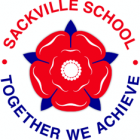Photography
Ms S Stirling – sstirling@sackvilleschool.org.uk
A level photography at Sackville introduces students to the creative potential of the SLR camera. Through intensive practical workshops in year 12, students learn confident control of their cameras. Knowledge of composition, shutter speed, depth of field, camera angle, lighting and location allows each student to move their work in a creative direction.
Through the study of work by well-recognised photographers, students start to understand the potential of the subject on a deeper level. Personal creativity is encouraged and individual themes start to emerge by year 13. By the end of the course, students will have built a substantial portfolio of mounted images.
We have a well-equipped darkroom with six enlargers where all students learn to print their work. We have a large digital suite, with scanners and high quality print facilities. Studio lighting is also available.
Study trips are made each year for work on location. We also visit galleries, including Tate Modern in London.
Component 1: 60% of your marks are awarded for practical coursework and an extended essay, looking in depth at the work of photographers and designers.
Component 2: 40% is gained in the second half of year 13, through an externally set assignment, which gives you the opportunity to demonstrate all your creative abilities.
Ongoing assessment of your coursework through y12 and into y13 helps you to work to your strengths. Teachers give regular feedback, both verbally and in writing. In May of Y13, the coursework and externally set assignment are formally assessed by teachers and moderated by a visiting external examiner. Students exhibit their work on site for moderation.
A photography degree may be useful in the following career areas, commercial photography and journalism, art gallery management, brand /sales promotion, multimedia design, community art, advertising art direction, web editing, photography technician, museum curatorship, teaching, sports photography.


